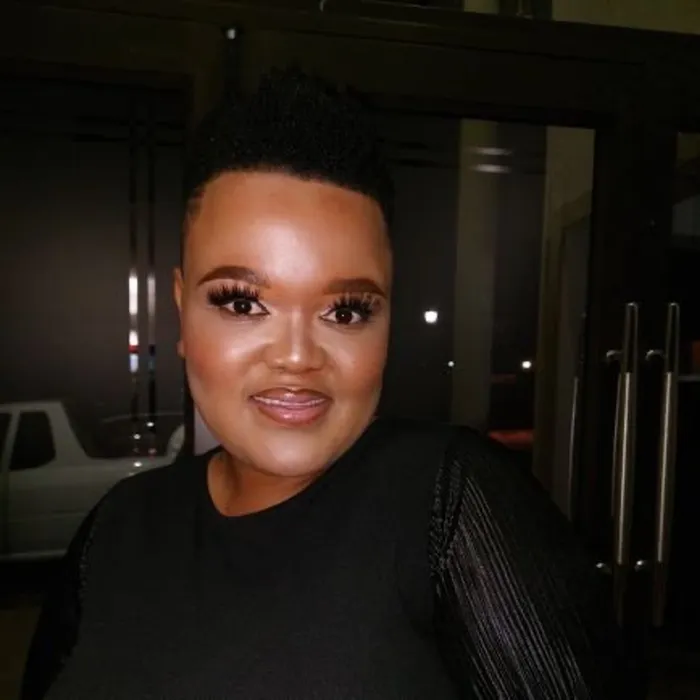There are no women’s struggles, but black women's struggles

Black women must prioritise their struggles as they are not the same as other races, especially white women, Wendy Nkosi writes.
The celebration of women’s month is a constant reminder of the long journey toward achieving gender equality and women empowerment in our society.
Black women must prioritise their struggles as they are not the same as other races, especially white women.
Many factors distinguish the statement mentioned above, domestic and racially related.
In a typical society like South Africa, which is already the most unequal society in the world, there is still inequality among women because of race.
It is a blunder for black women to believe that their struggles are the same as the white race.
Before discussing how gender equality will be achieved and how women empowerment can be promoted successfully, some pertinent issues that distinguish black women from white women need to be addressed to possibly find solutions.
Those issues can be classified as the triple oppression for a black woman: sexism, racism and classism.
The first is oppression, which affects black women from even forming part of the movement rallying for gender equality. Culture and traditions have been the main driver of oppression.
Black women are taught at a young age that “Mosadi o tshwara thipa ka bogaleng” meaning "a woman holds the knife on the sharp end.“
As empowering as the saying might sound, it gives presumption that women are strong. The strength is measured by how much trauma, pain and abuse they can take.
It provides a false narrative of the fact that women, even when faced with situations like abuse, heartache, or rather oppression at its best, instead of voicing out or, better yet, leaving, are more prone to staying and wanting to prove their strength and how much more they can take.
Racism has existed for centuries and still does today, which does not favour a black person. Black people still need to compete with unqualified white people for jobs with the right qualifications and skills.
The same goes for a black woman against other white women applying for a job. There are high chances that she may be overlooked, and the post is given to a white woman. The system is anti-black and will always remain anti-black. It has never favoured black people.
Classism in an unequal society like South Africa grows even more profound; the richer are getting rich, and the poorer are getting poor. The system is already against black people; now, imagine black women who compete with white women and must still face domestic issues. Which include being head of their households, raising their children without the father of the kids being present, having no support system from family due to many reasons, the poor background of their upbringing, and the different experiences they had before reaching adulthood.
White women cannot compare their struggles with black women as the triple oppression is a generational challenge stimulated by the colonial and apartheid times when the victims were black people.
The domestic-related challenges would be that black households are headed by black women that raise a girl-child with no present father for various reasons.
The cultural traditions that are constantly imposed when growing up and when a woman reaches a particular stage of life, on which decolonising such teachings is difficult as when she gets to a certain age, she realises how unequal society is and how difficult it is to make it in the world as a black person.
Now imagine for black women how hard it is to prove your capabilities as a black woman raised in or exposed to disadvantageous circumstances like drugs, sexual or violent abuse or that you can perform duties required in the workplace based on qualifications and experience than other women of another race who was raised in a much favourable background.
As a woman, I must fight for my space with privileged white women as the system favours white over black.
Black women’s struggles are one of the epitomai and stumbling blocks in achieving gender equality if not tackled from the root. Black women can achieve it; however, we must be honest and not fight each other on silly and unimportant issues that will grow the women’s movement.
Let us normalise having uncomfortable and uncensored views like the one that directly addresses black women’s struggles, which will be the first step to getting our affairs in order.
The system favours white more than black; the system will favour white women more than black women. Let’s not confuse our struggles with white women and think they will be solved collectively. Instead, it will cause much division and more challenges in our ethnicity and for the young black girls born into this cruel and unfavourable world.
* Wendy Nkosi is a research intern at the University of Johannesburg’s Institute of Pan-African Thought and Conversation.
** The views expressed herein are not necessarily those of Independent Media or IOL.
Related Topics: